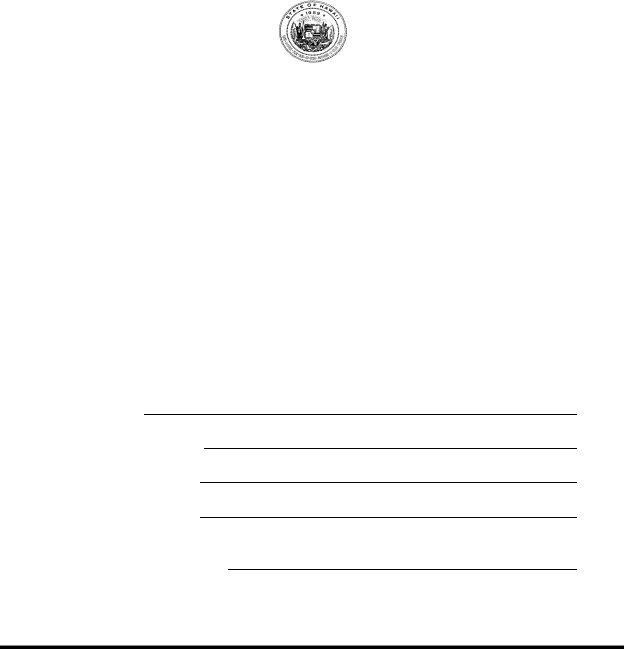Navigating through the renewal process for Certified Substance Abuse Counselors (CSAC) involves a comprehensive understanding of the necessary steps outlined in the Renewal Csac form. This crucial document serves as a gateway for professionals in the field to maintain their certification and continue providing essential services. The form instructs applicants to complete a detailed two-page application, ensuring personal and professional information is up-to-date. It also mandates the attachment of certificates or the submission of official transcripts to document a minimum of 40 hours of continuing education, with a specific emphasis on including 6 hours dedicated to counselor ethics. This continuing education is a testament to the counselor’s commitment to their professional development and adherence to evolving best practices in substance abuse counseling. Furthermore, the application requires a nominal fee, reinforcing the procedural aspect of the renewal process. All these components are directed to the Alcohol and Drug Abuse Division, highlighting a structured pathway to re-certification. Additionally, the form touches upon ethical standards, emphasizing the importance of integrity, non-discrimination, and the welfare of both the client and the public. The Renewal Csac form, thus, encapsulates not only the procedural steps necessary for renewal but also underscores the ethical and professional standards essential for those committed to the field of substance abuse counseling.
| Question | Answer |
|---|---|
| Form Name | Renewal Csac Form |
| Form Length | 4 pages |
| Fillable? | No |
| Fillable fields | 0 |
| Avg. time to fill out | 1 min |
| Other names | state of hawaii id form, hawaii state travel form printable, hawaii state id forms, csac renewal hawaii |

APPLICATION FOR RENEWAL
CERTIFIED SUBSTANCE ABUSE COUNSELOR
INSTRUCTIONS:
1.Complete the
2.Attach copies of certificates of completion and/or request an official transcript be sent to ADAD documenting 40 hours of
3.Include the $25.00 renewal fee in the form of a money order or certified check payable to
"STATE DIRECTOR OF FINANCE."
4.Send to:
Alcohol and Drug Abuse Division
Attn: Certification
Kakuhihewa Building
601 Kamokila Boulevard, Room 360
Kapolei, Hawaii 96707
1.Name:
(Please Print)
2.Home Address:
Street/P.O. Box
City/State/Zip
3.Home Phone:
Area Code/Number
4.
FOR OFFICE USE ONLY |
|
|
|
Fee Amount: |
__________ |
|
|
Date Received: |
__________ |
|
|
Transcripts/Certificate for CEUs Received: |
__________________________ |
||
Effective: |
__________________________ |
||
|
|
Expires: |
__________________________ |
New Certificate Number: |
____________ |
|
Renewal Application for CSAC |
|
Revised 04/22/10 |
|
1 |

5.Current Employer:
Organization or Business Name
Address:
Street/City/State/Zip
Business Phone:
Area Code/Number
6.Your Job Title:
7.Have you been certified as a substance abuse counselor in any other state since receiving your last certification?
Yes No |
(If Yes, what State? |
|
) |
8.Have you, during your current period of certification, been subject of a finding of unethical, unprofessional, or illegal conduct made as part of a final decision by a regulatory body (e.g. certification or licensing board) or by a court (civil or criminal)?
Yes No
(If yes, attach an explanation and copies of official documents.)
9.The name you wish to appear on your certificate:
* It is your responsibility to promptly report all name and address changes to the Alcohol and Drug Abuse Division. Records may be destroyed after TWO (2) years from the date of certification expiration or revocation.
Review and sign the following statement:
“I certify that all the information contained in this application and all attachments are accurate to the best of my knowledge.” I have received a copy of, read, and agree to abide by the “Code of Ethics for Substance Abuse Counselors and Program Administrators” as found in HAR 11- 177.1, Subchapter,
________________________________________ |
__________________ |
Signature (INK ONLY) |
Date |
(Return the above application, documentation of 40 hours of continuing education, including 6 hours in ethics, and your $25.00 money order or certified check payable to “State Director of Finance”)
Renewal Application for CSAC
Revised 04/22/10
2
DOCUMENTING CONTINUING EDUCATION
You must document 40 hours of continuing education, to include 6 hours in counselor ethics.
Continuing education may be verified by:
1.Transcripts
a.Official transcripts documenting courses in the human services fields must be sent directly from the college to the Alcohol and Drug Abuse Division. This can be done by contacting the college admission or registrar office. You must give them ADAD’s address:
Alcohol and Drug Abuse Division
Attn: Certification
601 Kamokila Boulevard, Room 360
Kapolei, Hawaii 96707
b.One semester credit equals 15 hours of continuing education; one trimester credit equals 10 hours of continuing education; one quarter credit equals 7.5 hours of continuing education.
c.Applicants for renewal must earn a grade of “C” or better in any course.
2.Certificates: Copies of certificates of completion for
3.Teaching: Send a copy of the appointment letter for college courses or the training agenda for workshops conducted. Credit for teaching college courses will be computed per 1.b. above. Credit for workshops will be the actual hours of training.
Renewal Application for CSAC
Revised 04/22/10
3
CODE OF ETHICS
CERTIFIED SUBSTANCE ABUSE COUNSELOR
CERTIFIED SUBSTANCE ABUSE PROGRAM ADMINISTRATOR
Principle 1:
Principle 2: Responsibility. The substance abuse counselor shall espouse objectivity and integrity,
and maintain the highest standards in the services the counselor offers.
Principle 3: Competence. The substance abuse counselor shall recognize that the profession is founded on national standards of competency which promote the best interests of society, of the client, of the counselor and of the profession as a whole. The substance abuse counselor shall recognize the need for ongoing education as a component of professional competency.
Principle 4: Legal and Moral Standards. The substance abuse counselor shall uphold the legal and accepted moral codes which pertain to professional conduct.
Principle 5: Public Statements. The substance abuse counselor shall honestly respect the limits of present knowledge in public statements concerning alcoholism and drug abuse.
Principle 6: Publication Credit. The substance abuse counselor shall assign credit to all who have contributed to the published material and for the work upon which the publication is based.
Principle 7: Client Welfare. The substance abuse counselor shall promote the protection of the public health, safety and welfare, and the best interest of the client as a primary guide in determining the conduct of all substance abuse counselors.
Principle 8: Confidentiality. The substance abuse counselor working in the best interest of the client shall embrace, as a primary obligation, the duty of protecting client's rights under confidentiality and shall not disclose confidential information acquired in teaching, practice or investigation without appropriately executed consent.
Principle 9: Client Relationships. The substance abuse counselor shall safeguard the integrity of the counseling relationship and ensure that the client has reasonable access to effective treatment. The substance abuse counselor shall provide the client and the client’s guardian, where applicable, with accurate and complete information regarding the extent of the potential professional relationship.
Principle 10: Interprofessional Relationships. The substance abuse counselor shall treat colleagues
and other professionals with respect, courtesy, fairness, and good faith.
Principle 11: Remuneration. The substance abuse counselor shall establish financial arrangements in professional practice in accord with professional standards that safeguard the best interests of the client first, and then of the counselor, the agency, and the profession.
Principle 12: Societal Obligations. The substance abuse counselor shall to the best of his or her ability actively engage the legislative processes, educational institutions, and the general public to make possible opportunities and services for all human beings of any ethnic or social background whose lives are impaired by alcoholism and drug abuse.
**Adapted from the National Association of Alcoholism and Drug Abuse Counselors “Ethical Standards of Alcoholism and Drug Abuse Counselors.” Printed in HAR
PLEASE READ THIS CODE OF ETHICS, AND KEEP IT IN YOUR POSSESSION FOR REFERENCE.
Renewal Application for CSAC
Revised 04/22/10
4